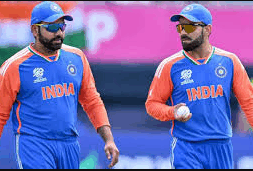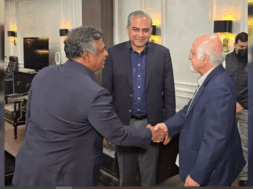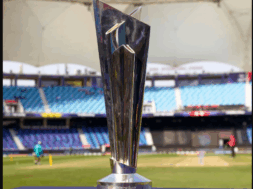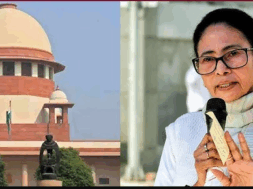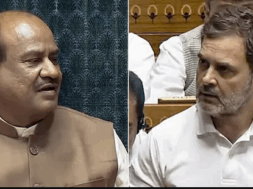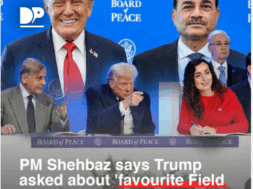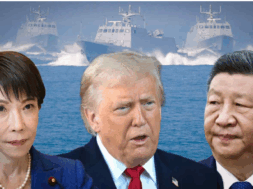
Manas Dasgupta
NEW DELHI, July 17: in what is being seen as a mega show of strength. The BJP on Monday claimed that 38 parties would attend the National Democratic Alliance (NDA) meeting in Delhi on Tuesday, the same day when 26 opposition parties are meeting in Bengaluru to take on the ruling BJP at the centre.
With less than a year to go for the big 2024 elections, where Prime Minister Narendra Modi will be the challenger again, both the opposition and the BJP are fine tuning their strategy and reaching out to allies.
Addressing a press conference, the party president JP Nadda said the NDA’s reach and scope has increased over the years. As of Saturday, 19 parties had confirmed their participation in the NDA meeting, after Nadda sent letters to allies — including newer ones like the Ajit Pawar-led NCP faction and former Bihar chief minister Jitan Ram Majhi’s Hindustani Awam Morcha — inviting them for the conclave. Prime Minister Narendra Modi will also be present at the NDA meeting, seen as the BJP’s bid to display the ruling coalition’s show of strength.
The BJP chief said there was great enthusiasm due to the positive impact of the Narendra Modi government’s schemes and policies. The NDA meeting will see the presence of a host of existing and new BJP allies as the ruling party has worked overtime in recent weeks and months to seal fresh alliances and win back those who had quit the ruling combine.
Over the weekend, OP Rajbhar, the chief of Suheldev Bharatiya Samaj Party, declared that he is joining the NDA. After quitting the NDA in 2019, Rajbhar, influential among OBC voters in eastern Uttar Pradesh, had been one of the most outspoken critics of the BJP. In Bihar, another OBC leader Chirag Paswan, son of former union minister and prominent OBC leader late Ram Vilas Paswan, has also been invited to the big NDA meeting in Delhi by JP Nadda.
For the Opposition, the key points on the agenda are deciding the contours of seat-sharing, and reaching greater coordination and communication. The BJP, which needs to win seats from new areas to compensate for the inevitable decline in the seats it won last time, is hoping to retain its old allies and get new ones, to fill the gap. It is also an effort to shed the impression that the party doesn’t value its allies enough.
Like the BJP ridiculed the opposition conclave calling it the Congress party’s “dagger and deceit policy,” the Congress leader Jairam Ramesh mocked the NDA meeting called on the same day as the Opposition’s. “Attempts are being made to breathe new life into the NDA. There used to be no talk about the NDA and suddenly since the past few days we are hearing and reading about it,” he said at a press conference in Bengaluru on Monday.
Congress general secretary (0rganisation), KC Venugopal, said the Opposition unity meeting would be “a game changer for the Indian political scenario”. “We are very happy to see that after the Patna meeting those who were saying that ‘we are very comfortable in defeating the entire Opposition alone’, have now started meetings. That is the real success of opposition unity,” Venugopal said.
Besides the Eknath Shinde-led Shiv Sena, the NDA allies participating in the meeting include a number of smaller parties from Bihar as well as several ruling allies from the Northeast region. They include the Chirag Paswan led LJP (Ram Vilas), Upendra Kushwaha’s Rashtriya Lok Samta Party, Sanjay Nishad’s Nishad Party (all from Bihar), Anupriya Patel-led Apna Dal (Sonelal), JJP from Haryana, Pawan Kalyan-led Janasena from Andhra Pradesh, AIADMK, Tamil Maanila Congress and Indiya Makkal Kalvi Munnetra Kazhagam (all from Tamil Nadu), All Jharkhand Students Union (AJSU) from Jharkhand, Conrad Sangma’s NCP from Meghalaya, NDPP from Nagaland, SKF from Sikkim, Zoramthanga’s Mizo National Front, and the AGP from Assam.
The BJP, however, is hit by the internal dissensions at the grass-root level after the party encouraged split in the NCP in Maharashtra to strengthen the Sena-BJP alliance government and is learnt to be planning on the same lines in some other states, including Bihar, where the party has been thrown out of power or is still on weak grounds.
The BJP is learnt to have scaled up its efforts in other states, including Bihar, Uttar Pradesh, Punjab and Andhra Pradesh, by roping in regional parties, or, in many cases, their leaders.
Those behind the national leadership’s political manoeuvrings believe such steps are necessary when “a party finds itself saturated in its strongholds” or when “it finds difficult to expand in regions that have long been out of its reach.”
A party leader involved in the expansion efforts says: “Today, the BJP has achieved a position no other party could dream of. But we have weak spots in many parts of the country, and we have to turn to leaders from other parties till we develop our own core base there.” They also gave examples of likes of Assam chief minister Himanta Biswa Sarma or UP minister Jitin Prasad, who came from the Congress and have become the driving force for the BJP.
However, not everyone in the BJP is happy, particularly the second-rung leaders who have been long waiting in the wings and now find their position suddenly uncertain. Many are also uncomfortable about having to justify the crossovers to their ideological bases.
In private, several ask whether roping in leaders facing graft charges, instituted by the BJP’s own governments in many cases, is worth the questions it raises. They talk about “unfiltered” inductions, their “placation” via plum positions, and the embarrassment this leaves them facing.
These leaders also talk about the difficulty in explaining why the BJP’s own governments are now increasingly projecting a welfarist agenda, even as the party takes on the Opposition’s “revdi” culture. “As we dilute the principles the party stands for, it is becoming difficult for the BJP to stand apart,” says a party leader.
A district leader who has been with the BJP for long, quipped, “It is no longer a party with a difference. The BJP is now a party with differences.”
Another local leader spoke about Devendra Fadnavis, who “had worked hard for the party for years,” being told to step aside as chief minister, to let new BJP Sena ally Shinde take the post. “We have been working hard, many times we have spent money from our pockets to work for the party. Obviously, we expect opportunities in the party. But if this is how the opportunities in the party are distributed, where will we get a chance?” the leader said.
However, to others now facing a stint in the wings again, the question is why the party has not been able to accommodate those from the organisation in its governments. “Why is it that those who come through the ranks always get sidelined? Most of the positions – be it in Uttar Pradesh or Madhya Pradesh – go to the lateral entries. How many of the top ministers in the Union government have come through the ranks?” a young party leader in Madhya Pradesh asked.


